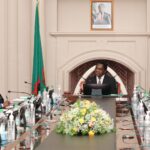Zambia is taking a significant step towards a more sustainable energy future with the introduction of the Net Metering Program. Spearheaded by the Energy Regulation Board (ERB), this initiative allows consumers to generate their own electricity and feed any surplus into the national grid, providing a promising solution to the country’s energy challenges. The program has been met with enthusiasm, viewed as a practical and forward-thinking approach to meeting the energy needs of the nation.
In a recent update, ERB Director General Elijah Sichone highlighted the dual benefits of the program: reducing electricity bills for participants and contributing to the strengthening of Zambia’s energy system. “The program empowers consumers to generate their own power and share the excess with the national grid, easing pressure on the system while supporting energy security,” said Sichone. This marks a significant milestone in Zambia’s efforts to diversify its energy sources and reduce reliance on traditional, large-scale hydroelectric power.
As of now, the tariff for energy supplied to the grid stands at 6 cents per kilowatt-hour. While the program is still in its infancy, its potential is evident. Sichone expressed optimism, noting, “As power supply becomes more consistent and awareness grows, we anticipate more Zambians will take advantage of this opportunity.”
However, there are challenges that need to be addressed to ensure the program’s success. The high initial cost of renewable energy systems, including solar panels and inverters, remains a significant barrier for many households and businesses. Experts and stakeholders are calling for affordable financing options and tax incentives to help make these systems more accessible. These measures, they argue, could accelerate adoption and increase the impact of the net metering program.
Despite these hurdles, the initiative has sparked a constructive dialogue among key stakeholders. “We are seeing robust engagement from various parties, which is encouraging. This kind of collaboration will only strengthen the program’s effectiveness,” Sichone noted. As discussions continue, it is clear that the program has the potential to drive meaningful change in Zambia’s energy sector.
One critical area that requires attention is public awareness. While many are aware of renewable energy’s advantages, the specific details of the net metering program are not yet widely understood. The ERB is actively exploring new strategies to improve outreach and educate more Zambians on how they can participate and benefit from the program.
Energy experts, environmental advocates, and early adopters of the program have praised its potential. By diversifying the country’s energy mix and encouraging investment in renewables, the program aligns with global sustainability goals while addressing Zambia’s local energy needs. One participant shared, “Installing solar panels has not only reduced our bills but also made us feel like we’re contributing to the nation’s energy security. It’s a step in the right direction.”
Engineer Sichone emphasized the importance of partnerships in ensuring the program’s success. “This initiative is about building partnerships between the government, the private sector, and consumers. Together, we can ensure Zambia achieves energy sustainability,” he said.
The net metering program comes at a time when Zambia is looking to modernize its energy infrastructure and reduce its dependence on hydroelectric power, which is increasingly vulnerable to climate-related disruptions. With the potential to reduce energy costs, enhance grid resilience, and promote environmental sustainability, the program could play a crucial role in shaping Zambia’s energy landscape.
While there are concerns about tariff rates and the accessibility of the program, the ERB is committed to refining the initiative based on feedback from participants. “This is an evolving process. We are open to adjustments that will make the program even more beneficial for participants and the nation as a whole,” Sichone affirmed.
The net metering program is a sign that Zambia is ready to embrace modern energy solutions and adapt to the challenges of the 21st century. With continued stakeholder collaboration and growing participation, the program has the potential to become a cornerstone of Zambia’s energy future, providing affordable, reliable, and sustainable power for all.






